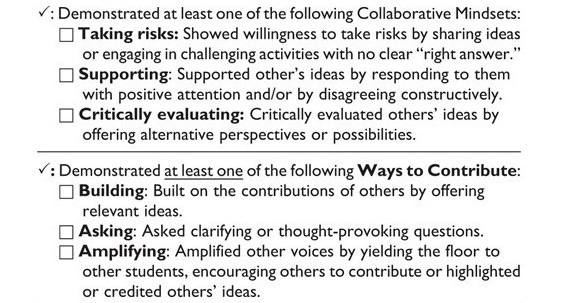Friday Fragments, January 29th
Student workload overload, re-examining "participation" and collaboration, and a helpful collection of online teaching principles.
What I’m reading…
The Workload Dilemma, by Betsy Barre for the Wake Forest Univ. Center for the Advancement of Teaching - home of the very helpful Course Workload Estimator - is a thoughtful article about student workload and why so many students profess to feeling overwhelmed. She offers 6 hypotheses for why this might be:
Whether we intend to or not, we might actually be assigning more work than we have in the past.
We aren’t assigning more work, but we haven’t made our expectations clear.
Some students are overestimating their work because they are unhappy to be learning online.
Many students could do well with less effort in the past.
The shift to online coursework has increased students’ cognitive load.
A global pandemic has decreased student capacity to work.
Developing Collaborative Thinkers: Rethinking how we Define, Teach, and Assess Class Participation (Bridgette Martin Hard & Taalin RaoShah; Teaching of Psychology journal) suggests that we re-conceptualize “participation” to instead value collaborative work. The authors offer the following example of a syllabus statement addressing collaboration:
An important goal of this course is to develop the ability to collaborate, a key skill for academic and professional success. Collaboration means exchanging ideas cooperatively with others to find a shared understanding, solve problems, and accomplish goals. Students will learn to be better collaborators by actively engaging with the class community through listening, speaking, and writing, with the goal of helping all students gain a deeper understanding of course concepts and how to apply them to understand and solve problems.
And include a rubric (excerpt below) that provides a clear set of expectations for students to help them understand what collaboration “looks like” - see the article for the full rubric.
Oregon State Univ. has a thoughtfully presented set of Online Teaching Principles - each with a brief one-paragraph explanation and references. I appreciate their philosophical perspective of outlining a list of principles that can be enacted in a variety of ways, rather than a more prescriptive checklist for instructors.







